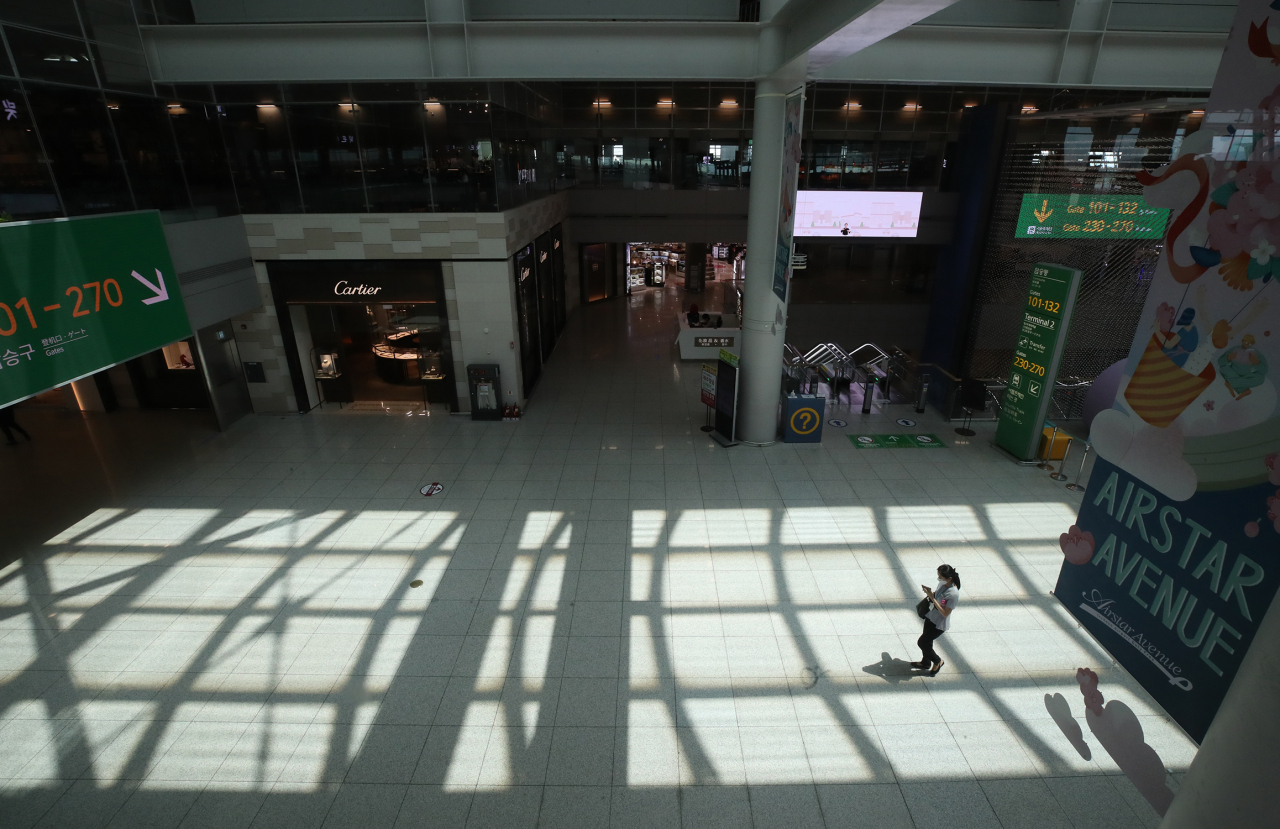Korea's Q1 growth revised up, but further contraction in store in Q2
By YonhapPublished : June 2, 2020 - 09:31

South Korea's economy shrank at a slightly less-than-expected rate in the first quarter but is projected to face a deeper contraction in the current quarter due to the growing economic fallout from the coronavirus pandemic, the central bank said Tuesday.
The country's real gross domestic product (GDP) contracted 1.3 percent from three months earlier in the January-March period, 0.1 percentage point lower than the expected 1.4 percent contraction in advance data, according to the Bank of Korea (BOK).
The 1.3 percent contraction marks the biggest on-quarter drop since a 3.3 percent fall posted in the last three months of 2008, it noted.
From the same period last year, real GDP expanded 1.4 percent in the January-March period.
The BOK painted a much gloomier picture for the April-June period, expecting the local economy to shrink by more than 2 percent from three months earlier.
"Considering the quarterly growth rates of last year and that of the first quarter, the growth rate in the second quarter of this year is estimated to fall in the low negative 2 percentage range," Park Yang-su, head of the BOK's economic statistics department, said in a press briefing.
In the first quarter, South Korea witnessed a severe slump in nearly all economic and industrial sectors.
Its exports slipped 1.4 percent from three months earlier, with its imports falling 3.6 percent on-quarter.
The output by its manufacturing sector slipped 1 percent, and that by its service sector dipped 2.4 percent.
Private consumption plunged 6.5 percent on-quarter, apparently on reduced spending caused by the spread of the new coronavirus, marking the sharpest drop since the first quarter of 1998, when the country was struggling to overcome the economic hit from the Asian financial crisis.
"On the expenditure side, private consumption went down 6.5 percent, as expenditures on goods and services both decreased," the BOK said.
"Exports fell by 1.4 percent, due to decreases in motor vehicles and machinery despite an increase in semiconductors.
Imports also fell by 3.6 percent, owing to decreased imports of crude oil and motor vehicles," it added.
South Korea had implemented strict social-distancing rules until early May, nearly freezing all business activities while prodding people to stay home to avoid possible infection.
The only relief came from increased government spending, which added 1.4 percent from three months earlier.
The country has already won two supplementary budgets to boost the local economy and is pushing for a third extra budget that it says will likely be the largest in the country's history.
Still, the central bank believes increased government spending alone will not be enough to keep Asia's fourth-largest economy growing.
The South Korean central bank has sharply cut its 2020 growth outlook to a 0.2 percent contraction, down from a 2.1 percent growth forecast in February.
Under worse than currently anticipated conditions, such as the peak in the COVID-19 pandemic being reached not in the second quarter but in the third quarter or later, the South Korean economy is expected to shrink by as much as 1.8 percent this year, it has said.
The government on Monday revised down its own growth outlook to 0.1 percent from the previous 2.4 percent forecast late last year, apparently taking into account its plans for an unprecedentedly large third extra budget.
The BOK said its latest growth projection did not include considerations for a third budget but said the local economy may post a positive growth should conditions at home and abroad improve quicker than currently anticipated.
Meanwhile, the BOK said the economy expanded 2.9 percent on-year in 2018 in its latest and final figures for the year, compared with a 2.7 percent gain earlier estimated.
The country's gross national income (GNI) or per capita income has also been slightly revised up to $33,564 in 2018 from an earlier estimate of $33,434.
In 2019, the country's real GDP grew 2 percent on-year, same as earlier estimates, but its per capita income has been slightly revised up to $32,115 from $32,047. (Yonhap)










![[Hello India] Hyundai Motor vows to boost 'clean mobility' in India](http://res.heraldm.com/phpwas/restmb_idxmake.php?idx=644&simg=/content/image/2024/04/25/20240425050672_0.jpg&u=)









